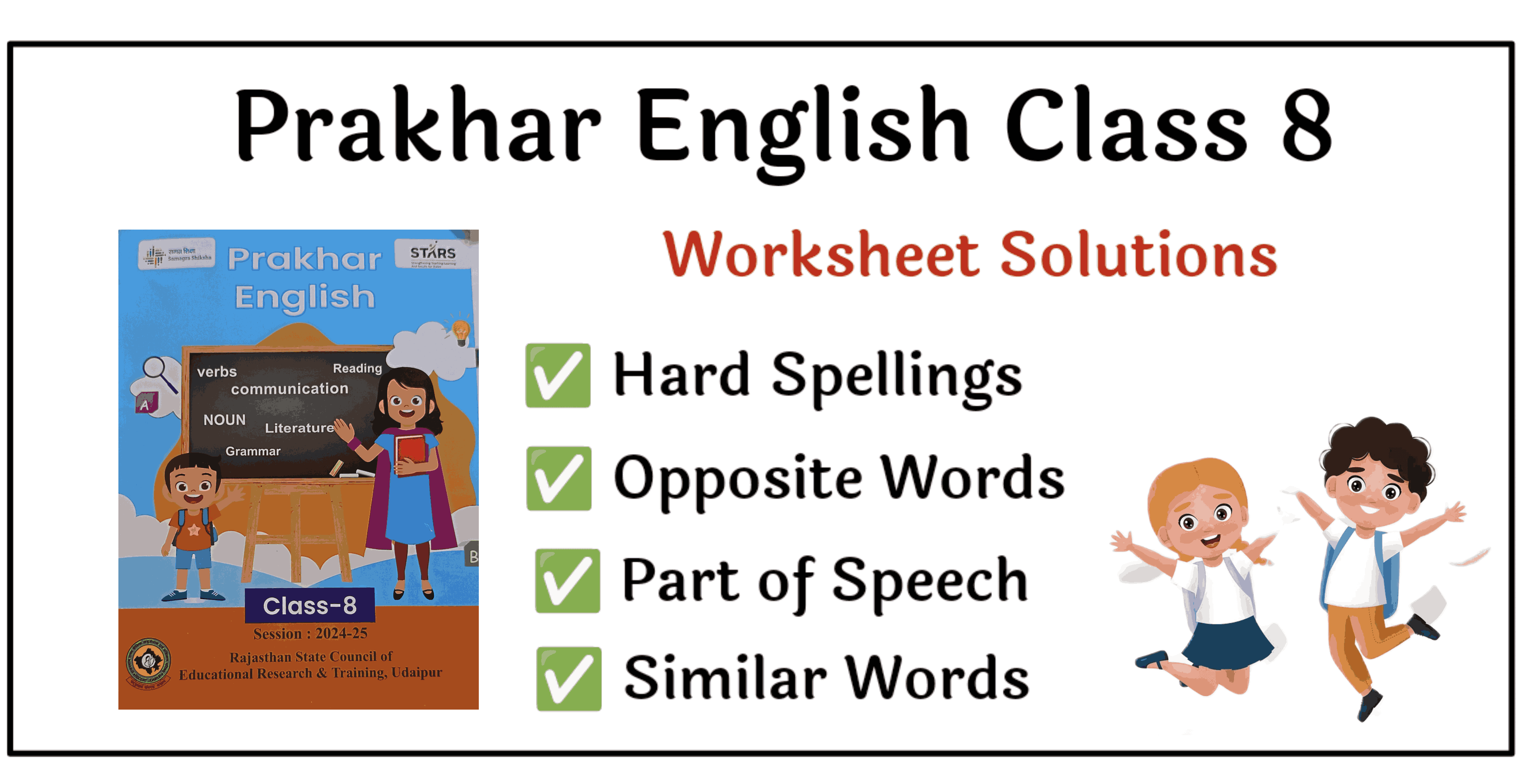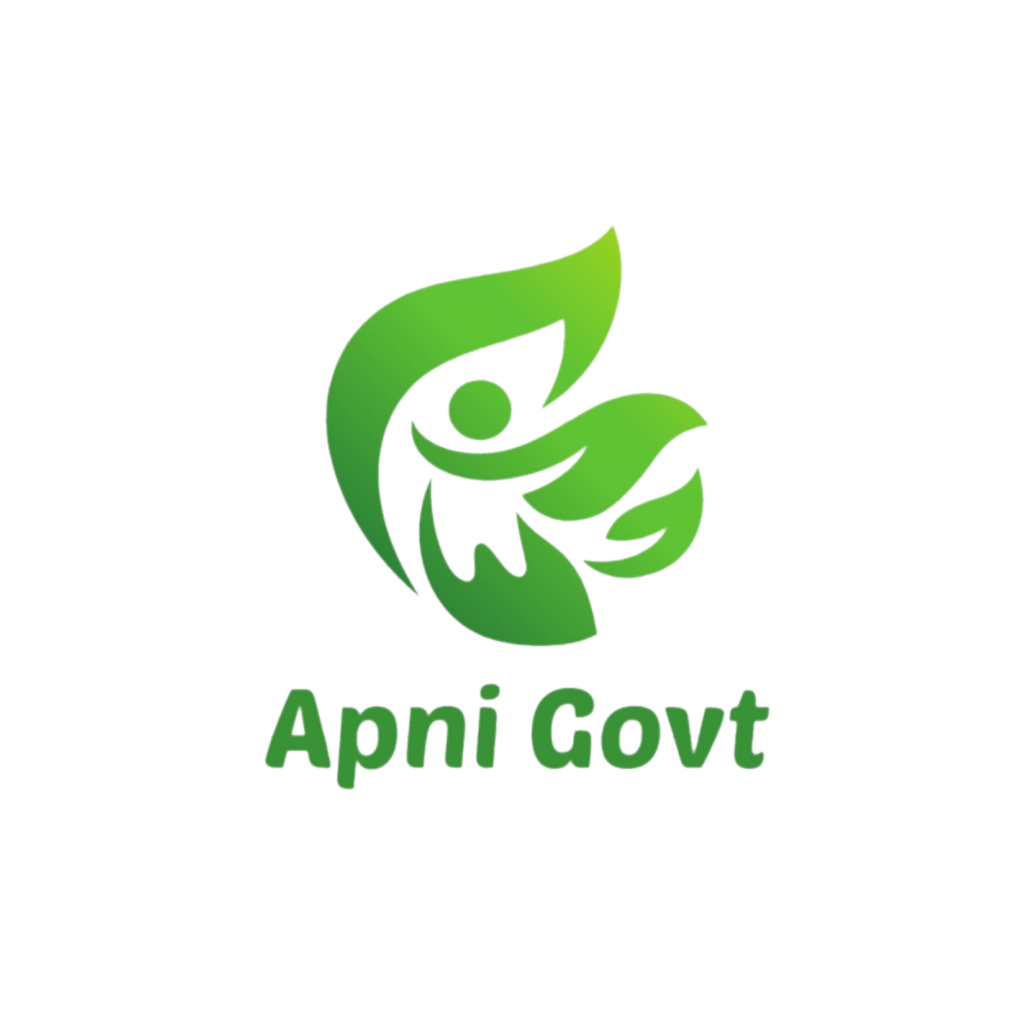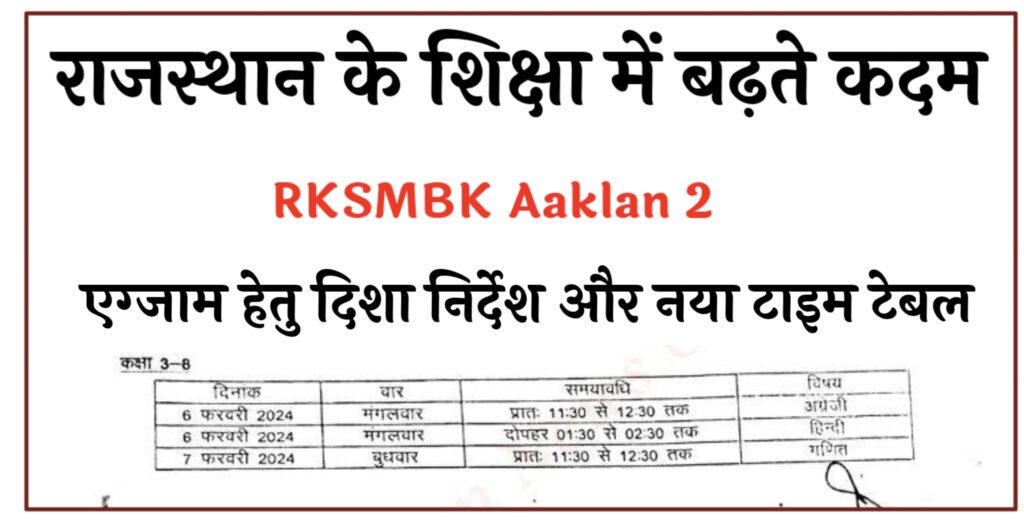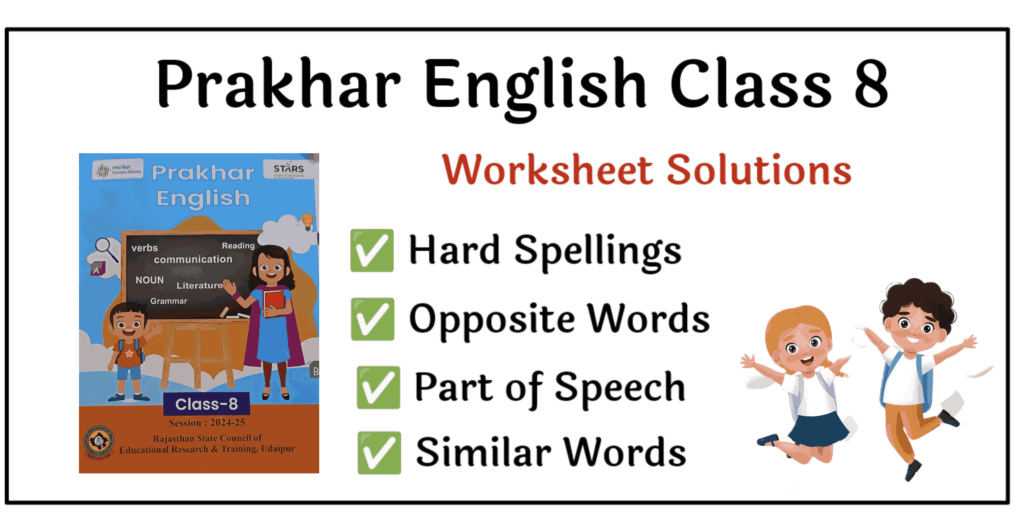RSCERT Rajasthan State Council of Educational Research & Training, Udaipur द्वारा विद्यार्थियों के अधिगम स्तर को बढ़ाने के लिए एक बेहतरीन प्रयास हेतु वर्कबुक जारी की गयी है I हमने आपकी Learning में और सुधार करने और एक इस कार्यपत्रक (Class 8 Workbook) Worksheet 13 में Hard Spellings, Part of Speech, Grammar & Vocabulary , Gender, Opposite, Similar Words, One words etc यहाँ क्लियर किये है

Class 8 Worksheet 13 Question Answers
solve this worksheet Read the paragraph carefully and answer the questions given below:
A rich man lived in a small town in Rajasthan. One day he brought home two large and juicy mangoes. He gave them to his servant and said “Ramu, take these to the kitchen and cut them. Make two cups of coffee too. A friend of mine will be coming soon.” Ramu cut the mangoes with the knife and put one piece in his mouth. “Ah! how sweet it tastes. If I eat just one more piece, the master will never know,” he thought. In a few minutes, the plate was empty. Ramu felt a little frightened.
Hard Spellings
यहाँ वर्कशीट 13 के सभी शब्दों के हिंदी उचारण और उनके अर्थ दिए गए है
Here’s a table with the hard spellings, their Hindi pronunciation, and their meanings:
| Hard Spelling | Hindi Uccharan (उच्चारण) | Arth (अर्थ) |
| Rich | रिच (Rich) | अमीर |
| Town | टाउन (Taun) | नगर या कस्बा |
| Rajasthan | राजस्थान (Rajasthan) | भारत का एक राज्य |
| Large | लार्ज (Laarge) | बड़ा |
| Juicy | जूसी (Juicey) | रसीला |
| Servant | सर्वेंट (Servent) | नौकर |
| Kitchen | किचन (Kitchen) | रसोई |
| Coffee | कॉफी (Coffee) | एक प्रकार का पेय |
| Friend | फ्रेंड (Friend) | मित्र |
| Minutes | मिनट्स (Minutes) | मिनट |
| Empty | एम्प्टी (Empty) | खाली |
| Frightened | फ्राइटेंड (Frightened) | डरा हुआ |
Opposite words, Gender, WH words, tenses
1. Opposite Words (विपरीत शब्द)
| शब्द | विपरीत शब्द |
|---|---|
| अच्छा (Acchā) | बुरा (Burā) |
| बड़ा (Baṛā) | छोटा (Chhotā) |
| दिन (Din) | रात (Rāt) |
| हल्का (Halkā) | भारी (Bhārī) |
| तेज (Tez) | धीमा (Dhīmā) |
| ग़रीब (Garīb) | अमीर (Amīr) |
2. WH Words (WH शब्द)
WH शब्दों का उपयोग प्रश्न पूछने के लिए किया जाता है।
| शब्द | अर्थ |
| Who | कौन (व्यक्ति के लिए) |
| What | क्या (वस्तु या क्रिया के लिए) |
| Where | कहाँ (स्थान के लिए) |
| When | कब (समय के लिए) |
| Why | क्यों (कारण के लिए) |
| How | कैसे (तरीका के लिए) |
| Which | कौन सा (विकल्प के लिए) |
3. Tenses (काल)
Tenses के तीन मुख्य प्रकार होते हैं: वर्तमान काल, भूतकाल और भविष्य काल।
-
Present Tense (वर्तमान काल)
-
Simple Present (सरल वर्तमान काल):
उदाहरण: I eat an apple.
(मैं एक सेब खाता हूँ।) -
Present Continuous (वर्तमान काल निरंतर):
उदाहरण: I am eating an apple.
(मैं एक सेब खा रहा हूँ।) -
Present Perfect (वर्तमान पूर्ण काल):
उदाहरण: I have eaten an apple.
(मैंने एक सेब खा लिया है।) -
Present Perfect Continuous (वर्तमान पूर्ण निरंतर काल):
उदाहरण: I have been eating an apple.
(मैं एक सेब खा रहा हूँ।)
-
-
Past Tense (भूतकाल)
-
Simple Past (सरल भूतकाल):
उदाहरण: I ate an apple.
(मैंने एक सेब खाया।) -
Past Continuous (भूतकाल निरंतर):
उदाहरण: I was eating an apple.
(मैं एक सेब खा रहा था।) -
Past Perfect (भूतकाल पूर्ण काल):
उदाहरण: I had eaten an apple.
(मैंने एक सेब खा लिया था।) -
Past Perfect Continuous (भूतकाल पूर्ण निरंतर काल):
उदाहरण: I had been eating an apple.
(मैं एक सेब खा रहा था।)
-
-
Future Tense (भविष्य काल)
-
Simple Future (सरल भविष्य काल):
उदाहरण: I will eat an apple.
(मैं एक सेब खाऊँगा।) -
Future Continuous (भविष्य काल निरंतर):
उदाहरण: I will be eating an apple.
(मैं एक सेब खा रहा होऊँगा।) -
Future Perfect (भविष्य पूर्ण काल):
उदाहरण: I will have eaten an apple.
(मैंने एक सेब खा लिया होगा।) -
Future Perfect Continuous (भविष्य पूर्ण निरंतर काल):
उदाहरण: I will have been eating an apple.
(मैं एक सेब खा रहा होऊँगा।)
-


